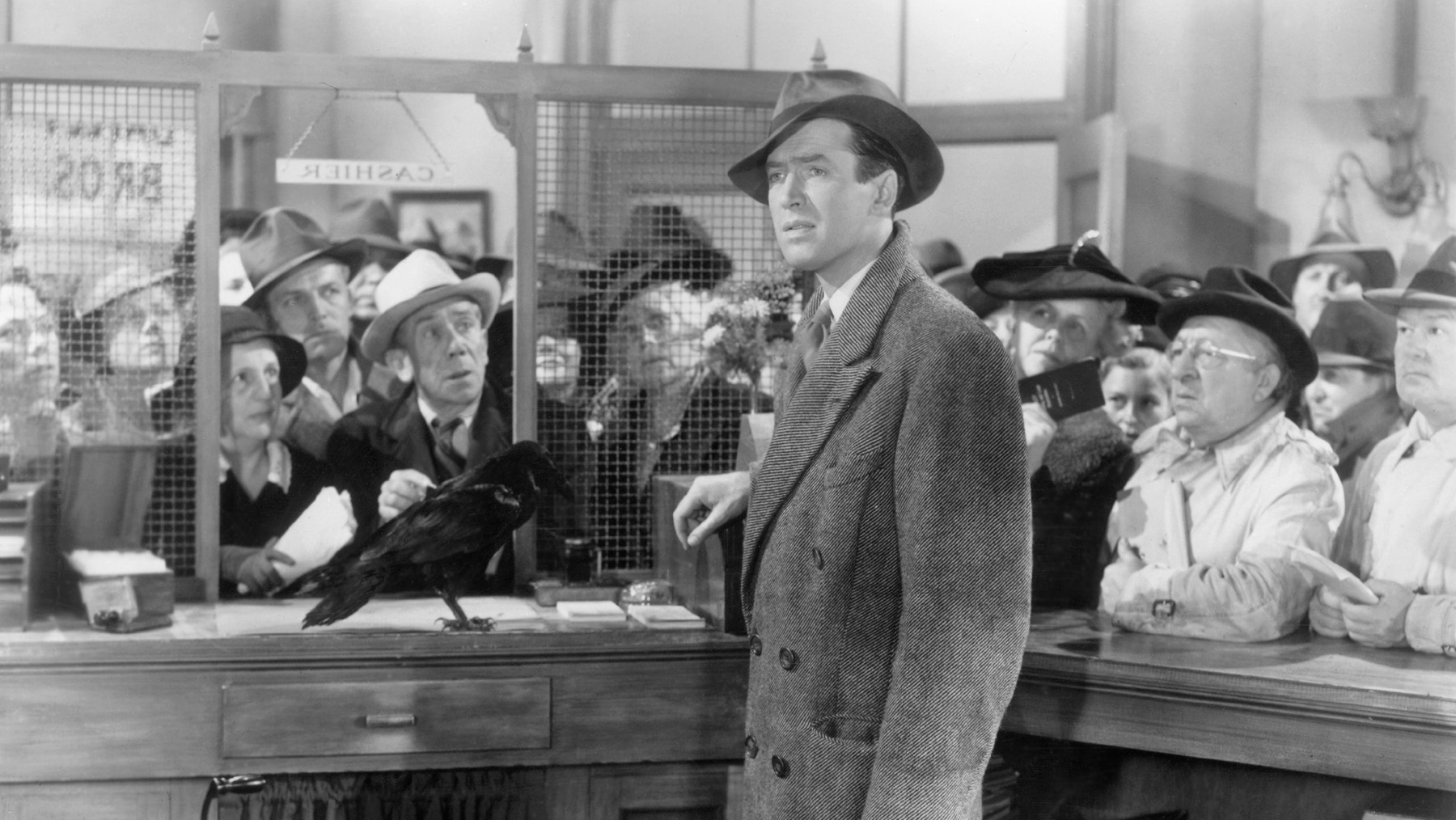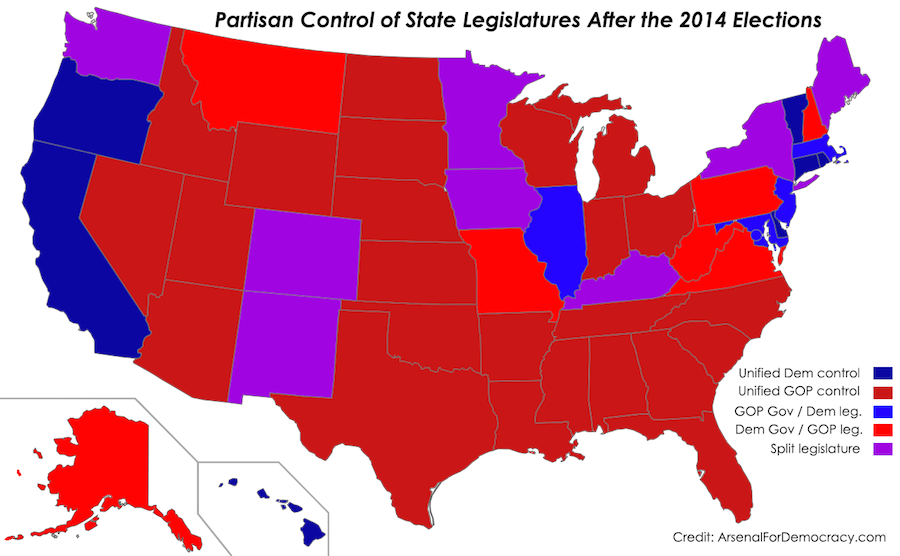Archive for category 2016 Presidential Race
Debating to Win
Posted by Joshua Sharf in 2016 Presidential Race on November 12th, 2015
 Tuesday night, Neil Cavuto asked the question about the bank bailouts, and whether or not a President Cruz, or Rubio, or Paul, or Bush, or Kasich, would help organize a government rescue of, say, BankAmerica if it were on the verge of going under.
Tuesday night, Neil Cavuto asked the question about the bank bailouts, and whether or not a President Cruz, or Rubio, or Paul, or Bush, or Kasich, would help organize a government rescue of, say, BankAmerica if it were on the verge of going under.
Almost all those who answered the question – with the exception of Bush and Kasich, both of whom worked for banks, and both of whom answered incoherently – all of them said, no, they would let BankAmerican fail. When Cavuto pressed them on the question of people’s savings, they continued to say no, they wouldn’t bail out BankAmerica, they’d let it go under.
And that was it. No elaboration of what that would mean for people, no discussion of the consequences. Just talk of “too big to fail” and how lousy Dodd-Frank is
I cannot begin to describe how awful an answer that is.
Without even talking about the policy, which might or might not make sense (although these same candidates for the most part didn’t want to talk about breaking up the “too big to fail” institutions, or how interconnected all the banks are), the answer as an argument to the people who were watching at home was catastrophically bad.
Cavuto pressed this point several times, and not one of the candidates – not even Ted “Smartest Guy In the Room And I’ll Make Damn Sure Everyone Knows It” Cruz – brought up the fact that we have deposit insurance in the form of the FDIC. Individuals probably don’t have anything to worry about in terms of their own bank accounts, even pretty well-off individuals. But nobody thought to mention this fact.
Look, I realize that the bank bailouts and TARP are, right now, as toxic among Republicans as a tranche of subprime mortgages was in 2008 to an institutional investor. But when people hear “bank failure,” they don’t think, “Wall Street Fat Cats,” they think Jimmy Stewart cancelling his honeymoon to go save the Building & Loan in It’s A Wonderful Life, which people have only seen a thousand times in their own lives. They think bank runs and desperate looks and breadlines and Mary Poppins and life savings’ wiped out and lives ruined.
They think personal devastation.
And yet not one word that any of these Presidential candidates uttered did anything to reassure people that it wouldn’t happen to them.
Now think for a second how a rational, intelligent version of Joe Biden would have answered that. (Yes, I know, imagining such a thing is like imagining a vegetarian lion, but work with me.)
He’d talk about how people count on those banks, and count on they’re being safe in order to feed their families and pay their rent or their kids’ college tuition. He’d talk about how he’d make sure that every last one of those workers were taken care of, how not one of them would lose s dime, but how the bankers who made those mistakes and put those lives at risk would have their toys taken away.
He’d talk about how nobody would get out of paying a penny they owed, and all those loans would go to a healthy bank, one run by people who weren’t greedy, and how all those savings would be made whole. And he’d say that thank God and FDR we have deposit insurance, so the little guy can’t get trampled when the big guys make mistakes. Because he grew up knowing people who had lost everything in the Depression, everything being not much to begin with, and by God he wasn’t going to let that happen again.
This is no small mistake, no “nobody’s perfect” moment. This is basic stuff that wasn’t mentioned at all, and that Cavuto pressed people on, making it sound as though individual savings were at risk. I’m sure he knows better and had a follow-up that would have made it clear, but with nobody biting, he never had a chance to bring that out.
The Democrats are going to demagogue this to death, and there’s no reason for it.
Fortunately, right now, Hillary, Woman of the People, seems to be Wall Street’s favorite candidate, so there should be other opportunities to push this line. Let’s hope they make better use of it.
Hillary Goes BLM
Posted by Joshua Sharf in 2016 Presidential Race, National Politics on November 4th, 2015
Hillary Clinton met with the mothers of Treyvon Martin, Michael Brown, and Tamir Rice Monday. The meeting comes after several other efforts to court the Black Lives Matter (sic) organization.
There are – literally – millions of other mothers Hillary could have met with yesterday.
She could have met with the moms of some of the police officers killed. She could have met with Chris Mintz’s mom, or even Chris Mintz himself, since he’s still miraculously alive. She could have met with the moms of some people killed by thugs on the streets, or people who had their stores robbed, or people who intervened to stop those things.
She could have asked the board of the Clinton Foundation to throw a little money to the people of Ferguson who saw their town used as a staging ground for street violence, and their downtown burned to the foundations.
Instead, she decided to help legitimize that street violence by signalling to the Black Lives Matter crowd that she was on their side. For the record, she was also the very first guest on Al Sharpton’s show in his new Sunday morning time slot.
What’s at work here is the ultimately self-destructive and (one can only hope) self-defeating identity politics of the modern Democratic Party. Barack Obama won re-election largely on the strength of an enormous turnout of black voters.
It’s also true that Hillary realizes that there’s probably no way that she can repeat that kind of performance, and that in order to win, she can’t let it slip all that far. She needs enthusiasm, and if she can’t get that, she’ll settle for energy. In a way, the joyless, angry Black Lives Matter is a great match temperamentally for the joyless, angry Hillary Clinton.
It’s to Barack Obama’s lasting shame (if he, indeed, is capable of such) that he has helped empower these street thugs and allowed others to think that they somehow represent the black community. Madame Hillary may feel that she has no choice but to court them, in order to prevent the sort of disruptions that helped defeat Humphrey in 1968. And if that means being unable to choke out the words, “All lives matter,” which are apparent now exclusive by virtue of their inclusivity, or something like that, well, that’s a small price to pay for the White House.
The problem is, it’s not a small price for the rest of us. Interest groups can afford to be provincial. Presidents should not, and the idea that “all lives matter,” even as a meaningless phrase, shouldn’t be controversial to the President. The President, who will also appoint the Attorney General and help run the Civil Right Division.
After Monday, don’t say you weren’t warned.
American Independents
Posted by Joshua Sharf in 2016 Presidential Race on October 20th, 2015
Word is that former Virginia Senator Jim Webb will be dropping out of the race for the Democratic presidential nomination, and may consider an independent run for the office.
So far, the Sharf Curse remains intact. My first two choices for the Republicans were Rick Perry and Scott Walker, so far the only two Republicans to give up their runs. On the Democratic side, Webb seemed to be the only sane one running. Although he was well to the left of me on economic policy, he seemed well-grounded on social issues, and was the only Democrat who was remotely connected to the real world when it comes to foreign policy.
I wasn’t the only one who noticed that Webb seemed to be on the wrong stage, and wished that the RNC and DNC general managers could get together and arrange a trade for Trump.
Given that, it’s not surprising that many Republicans are reacting favorably to the idea of Webb running as an independent, particularly as the idea grows that Trump might be the nominee. (I myself remain serenely unconcerned about that possibility, for much the same reason that I don’t trouble myself over the prospect of a Sharf Administration.) The reasoning goes that Webb, as a basically reasonable guy, would be able to work with the Republicans on foreign and, to some extent, social policy, and with the Democrats on economic policy.
In some ways, it’s an appealing thought, but it’s not going to happen.
For one thing, Webb can’t possibly get elected. Even in this day of reduced party organizations, they can still mobilize ground support and GOTV efforts like no other. It also doesn’t appear that Webb would have the support of any of the independent organizations (the Koch brothers’ AFP, or the Silicon Valley data-mining enterprises).
Even if he were to win, he would find himself without party support in Congress. This might not matter so much during normal times, and if the take-away for the parties from an independent being elected president were that people were tired of drama, we might get back to normal times.
But I don’t think that’s in the cards, with Nancy Pelosi in the House and Chuck Schumer leading the Democrats in the Senate. There might be a honeymoon of sorts, and it might even last a while. And for things like Supreme Court nominations, one could even argue that without a partisan target, the parties might be more willing to look at the merits of a nominee. Personally, I think they’d be even more focused on outcomes rather than background and temperament.
Moreover, President Webb would have no party base of support to fall back on when things get rough. To do so would be to risk becoming captive to one party or the other in Congress. Either party would extract a steep price for going to the mat for him and expending political capital on his behalf during a difficult fight.
All of which points to an even more ominous development that a Webb presidency would portend – the extension of executive power even beyond its current, bloated form.
Think about it. In foreign policy, the executive has primacy. Webb is more likely to have Republican support for whatever his foreign policy looks like in practice, so they’re not likely to try to clobber him over that the way the Dems did to Reagan over Iran-Contra, or George W. Bush over the Iraq War. Moreover, Republicans, barring outright catastrophic decisions like those we’ve been seeing since 2013, tend to be gunshy about undercutting the executive in this arena.
What they’re likely to have a problem with is Webb’s domestic policies. While those policies are unlikely to resemble Obama’s aggressive, transform-the-country-into-Venezuela-cum-Norway approach, they’d still be his own, not Congress’s.
And the power dynamic hasn’t changed. The executive branch still has broad regulatory authority that acts like legislative power, and Webb would likely, after a year or so of failed cat-wrangling of his own, likely find the temptation to use them to their fullest to be irresistible.
The Senate Democrats are practiced at running interference for liberal executive overreach. The Republicans will be tempted to do to the same for things like changes to the EPA’s range of authority. And Webb would have little incentive to seek legislation that would structually revert power back to Congress from the executive or back to the states from Washington.
So while a Webb Administration might provide some sanity and stability, it could probably only do so by entrenching the means for further lawlessness and chaos down the road.
A Modest Proposal on Murder
Posted by Joshua Sharf in 2016 Presidential Race, National Politics on October 6th, 2015

Today, in response to the UCC shootings, Hillary Clinton resurrected that old chestnut, making gun manufacturers liable for the misuse of their legal product. She would allow the families of murder victims whose killers used a gun to sue the gun manufacturer for damages.
It’s a gun ban by another name, since no manufacturer would be able to afford the liability insurance required to stay in business. And if you think this would end with the manufacture of guns, think again. Gun ranges, gunsmiths, gun retailers (who are federally-licensed) would soon find themselves covered, making the transfer, sale, and repair of firearms effectively illegal.
The proposal is silly on the face of it. Guns can be used for many purposes, almost all of them lawful, safe, and beneficial. Guns are used for self-defense in this country every day. As has been repeatedly mentioned, even as gun ownership has soared, crime rates, including the murder rate by guns, has plummeted.
But as long as we’re at it, let’s understand that while slightly fewer than half murderers use handguns, many use knives or blunt objects such as hammers. If the goal is to reduce actual murder, rather than to simply get guns out of the hands of law-abiding citizens, we should, by logic, allow the families of murder victims whose killers used hammers or steak knives to sue those manufacturers, as well. In 2014, 71 people were murdered by fire. We should then allow those families to sue match manufacturers.
Eighty-nine people were murdered by strangulation. Strangling someone with one’s bare hands is hard; an object is usually used. Clearly, the manufacturers of electrical cord, rope, belts, and other clothing should be liable.
In Israel, Palestinians have recently taken to driving cars into Jews standing at bus stops. Were such a practice to become common here, the auto manufacturers should be held liable, as well.
Obviously, the economy would grind to a halt within minutes of such laws being passed, indeed, long before they actually became law, as retailers and manufacturers scrambled to get out of these suddenly-risky businesses. But in principle, there’s nothing different between holding Ginsu responsible for the murderer who uses its kitchen knife and Glock responsible for the breakdown of social order in Chicago.
Despite having lost the gun control debate, Democrats holding and running for the White House continue to try to make a partisan issue out it. The issue always fades away because the media and the Washington Democrats never learn that this isn’t a partisan issue anymore, with most Americans resisting new gun laws.
There are three former state senators here in Colorado who could remind them, though.
It’s Not Just Separation of Powers – It’s Also Federalism
Posted by Joshua Sharf in 2016 Presidential Race, National Politics on September 25th, 2015
 Facebook friend of mine Ken Gardner is fond of saying that a fair number of people who think they’re dissatisfied with Boehner and McConnell are really dissatisfied with the separation of powers. After all, any real change requires legislation, any legislation can be vetoed, and the Democrats in the Senate have proven that they won’t even let it come to that, with their abuse of the filibuster over the Iran deal.
Facebook friend of mine Ken Gardner is fond of saying that a fair number of people who think they’re dissatisfied with Boehner and McConnell are really dissatisfied with the separation of powers. After all, any real change requires legislation, any legislation can be vetoed, and the Democrats in the Senate have proven that they won’t even let it come to that, with their abuse of the filibuster over the Iran deal.
However, federalism plays as big a role as separation of powers. Our senators and representatives are from specific states and district, which can look very different from each other. In this respect, we are strikingly different from parliamentary democracies, even those such as Canada and the UK, where national slates really rule roost. In Will Mrs. Major Go to Hell?, William F. Buckley tells the story about a married couple, she from Massachusetts, he from Virginia. They discussed politics often, but never party registration. Turns out he was a Democrat, and she was a Republican, which came as a surprise to both of them. He being so conservative, she had assumed he was a Republican. She being so liberal, he had assumed she was a Democrat. Lots of fighting over that, apparently.
Those regional differences persist, even after the Great Reshuffling that began in earnest with the 1994 Congressional elections. The map that decorates this post, showing a broad swath of Republican legislative control across the country, masks a broad range of opinion and viewpoints. The Michigan and Wisconsin governments are run by Republicans, but I will promise you they are very different from Alabama and Mississippi.
That’s fine when you’re dealing with state issues. It comes into collision in Congress, where these regional Republicans have to sit in the same body.
When I was growing up, southern Congressional Democrats, who often voted conservatively, were referred to as “boll weevils,” while their northern liberal Republican counterparts were the “gypsy moths.” And it’s worth remembering that while Jesse Helms couldn’t have gotten elected in Minnesota, or Rudy Boschwitz in North Carolina, they both voted for the Reagan tax cuts.
What made it different was the “Reagan” part. Yes, the president has the veto power, but he also has the bully pulpit, and is the only office-holder elected by the entire country. He can set the agenda and give the party focus and direction in a way that it’s almost impossible for Congressional leaders to do.
There’s no question that Obama has broken the basic political agreement between citizens and the government:
Barack Obama has become the transformational president he aspired to be. Among the things he has transformed is the nature of the political compact between the rulers and the ruled in our republic.
Before Obama, citizens hoped that their elected leaders would be wise, independent, and disinterested leaders—but they never really counted on utopian vision. What they banked on was that the people they elected would, at the very least, be self-interested vote-seekers—so that if voters started punishing politicians for a specific course of action, the politicians would abandon it.
The passage of Obamacare broke this arrangement. And the impending passage of the Iran nuclear deal, in the face of voter discontent will cement this new relationship as the norm. In both cases, Democratic law makers went along in processes that were highly irregular (the nuclear option for passage of Obamacare; no treaty ratification with Iran); with initiatives they largely disliked on the merits; that voters demonstrably disliked in polling; and that had (or are likely to have) negative outcomes not just in the real world, but in the political world, too. This sort of power dynamic is new in American politics.
There’s also no question that Boehner and McConnell have been slow to recognize this shift, even as their opposite numbers on the Democrat side conspired in the reduction of Congress to an adjunct of the executive branch.
Whatever Boehner and McConnell may have “let” happen, real change will not come through Congressional action. It will have to wait for a Republican president, and even then, it will only happen with an energetic president committed to pushing legislation that devolves executive power back to Congress, reduces actual regulatory authority, and devolves federal power back to the states. It’s why primaries matter.
Obama is more Marius than Augustus, and we will not find our way back with a Sulla of our own. Sulla, of course, thought he was restoring the old order, but in the end, his lasting accomplishment was to establish a road map for future despots.
Who Do You Trust?
Posted by Joshua Sharf in 2016 Presidential Race, National Politics on September 17th, 2015
That was the name of a TV show back in the 50s & 60s, whose main claim to fame is launching the national career of a young star named Johnny Carson. Carson would go on to actually be a guy who people trusted enough to invite into their homes almost every night for 30 years.
was the name of a TV show back in the 50s & 60s, whose main claim to fame is launching the national career of a young star named Johnny Carson. Carson would go on to actually be a guy who people trusted enough to invite into their homes almost every night for 30 years.
It’s also the name of the game when electing a President, to a degree we often don’t like to admit to ourselves. We don’t govern the country by plebescite, and even if we did, a President would still be required to make a large number of major decisions for which he will only later be held accountable. Part of the reason we put so much emphasis on intangibles is that we need to be able to trust the man (or woman) making those decisions.
Some of this does come down to philosophy. There’s a principle in Jewish law that if you give someone a gold coin, but you tell them it’s a silver coin, they’re only responsible for taking care of it like a silver coin. Why? Because what’s important to you may not be important to them. If you want something treated like a gold coin, you need to make sure that the person you’re giving it to values it that way. It’s the reason that we demand that kosher supervisors keep kosher themselves.
In the same way, people who are passionate about a particular issue will want proof that a candidate is as sincerely intense (or intensely sincere) about it as they are. If you really care about guns, then a comment like Ben Carson’s about not needing semi-automatics in a big city is a disqualifier.
If you really care about small government, then you want someone you can trust to be making the small decisions that reduce the power of the executive, and who’ll take on entitlement reform. You want someone who invests his staff, from the cabinet on down, with that same zeal, and who is always guiding the budget, rule-making, and legislative processes in that direction. You can’t measure that on a day-to-day basis. You have a business to run, a job to do. You need to trust that it matter to him (or her), and that what you don’t see is also going in the right direction.
It’s the main reason that – for President – I prefer governors to senators, and politicians to newbies. What do they care enough about to keep, and what do they consider to be disposable? Governors have to make decisions and run organizations, while senators have to run their mouths and cast votes. Newbies may have opinions, serious opinion even, but they haven’t been tested in the crucible of tradeoffs and compromise that our system is built on.
And as difficult as things in Austin or Madison or Tallahassee or Columbus might be, they’re nothing like DC. If you want real change – not just a return to normalcy that ratifies the wreckage of the last 8 years, but a real effort, against colossal pressures, to undo the damage wrought by this administration in virtually every area of our public life, then you need to trust that that person will be disciplined and energetic, as well as persuasive.
That sort of trust, as well as the 3 AM Phone Call-kind of trust, needs to be projected. And as a voter, it requires judgment about character, discipline, and energy, as well as political philosophy and how deeply they’ve thought about the issues at hand.
Here’s what I think I know about the candidates so far. The one guy I could trust on all counts just dropped out. So much for Perry. Trump has shown me that I can’t trust him. Rubio and Fiorina have earned the right to convince me. Fourteen months away from the election, six months away from our state caucus, that’s about all I’ll commit to for them. I remain wary of Cruz, who I think would make a dynamite Supreme Court Justice, but who politically, seems to always have more of an angle than a plan. Paul has shown me that I can trust him on foreign policy – to pretty much always be wrong. Walker has pretty much shaken my trust in his instincts, at least in primaries, and will need to work to get it back. Carson, I’d love to have over for a meal – I could trust him with my best china and most delicate stemware, as well as to provide entertaining, charming conversation. And Kasich and Bush, I think I could trust to be solid men who wouldn’t do a lick to roll back Obamacare or reimpose sanctions on Iran.
One last word about Fiorina, since she’s the one non-professional I’m considering. The reason she’s earned to right to persuade me is that she says most of the right things, is quick on her feet, but also projects being in control. She also knows how to use her gender to advantage without beating you over the head with it, which I think is part of the reason she’d do well in the general – women don’t like Hillary; women do like Carly. That said, there’s danger there that she becomes the Republican gender-based version of the Democratic race-based Barack Obama: we get so swept up in the idea of electing a woman that we forget that we’re electing a real person we need to trust to make the right decisions. We need to be sure of what we’re getting, and not let smoke get in our eyes.
 Of course, people can also vote against not trusting someone. I know people who bit their fingernails before voting for Nixon in 1972, hoping they did the right thing, and who did the same thing in 1976 with someone who made trust an explicit campaign theme, which would indicate some insecurity on the subject. Many uneasily trusted Ronald Reagan in 1980, when the incumbent asked openly if we could “trust” him with his finger on the button. By 1992, many had decided they couldn’t trust George H.W. Bush, and by 1996, decided they could trust Clinton politically, if not personally. In 2012, Obama had lost the trust of many American Jews, and by 2015, I personally can’t see how he’s retained the trust of any. (Whether or not that creates an electoral opportunity for the 2016 Republican nominee is also a matter of trust, something last night’s Ann Coulter tweets did nothing to help.)
Of course, people can also vote against not trusting someone. I know people who bit their fingernails before voting for Nixon in 1972, hoping they did the right thing, and who did the same thing in 1976 with someone who made trust an explicit campaign theme, which would indicate some insecurity on the subject. Many uneasily trusted Ronald Reagan in 1980, when the incumbent asked openly if we could “trust” him with his finger on the button. By 1992, many had decided they couldn’t trust George H.W. Bush, and by 1996, decided they could trust Clinton politically, if not personally. In 2012, Obama had lost the trust of many American Jews, and by 2015, I personally can’t see how he’s retained the trust of any. (Whether or not that creates an electoral opportunity for the 2016 Republican nominee is also a matter of trust, something last night’s Ann Coulter tweets did nothing to help.)
In the end, trust is part of the reason that people get very testy when you criticize their chosen candidate: you’re not just discussing a person, you’re criticizing their own judgment, as well, and a personal bond the candidate has forged with them. Which is why it shouldn’t be easily earned or easily given.
Call Western Union
Posted by Joshua Sharf in 2016 Presidential Race, Governor 2010 on August 11th, 2015
 “If you want to send a message, call Western Union.” – Samuel Goldwyn
“If you want to send a message, call Western Union.” – Samuel Goldwyn
Much if not all of the Trump boomlet is fueled by a frustration with and distrust of a party establishment that seems not only cozy with progressives, but comfortable with progressivism. Articles by both Reihan Salam and Glenn Reynolds have made this point, and it’s one that Mark Steyn has talked about. Americans are happy to play politics between the 40-yard-lines. Given a perpetual choice between 49-yard-lines, though, they rebel.
The problem is that this rebellion isn’t necessarily coherent, and is usually destructive. In 1968, Democrats sent a message to Lyndon Johnson, and got Richard Nixon elected. In 1992, Republicans sent a message to George H.W. Bush in the form of Pat Buchanan, and got Bill Clinton elected.
A close analogy is here in Colorado in the 2010 governor’s race. Unpopular incumbent Democrat Bill Ritter decided not to run for re-election amid rumors of personal scandal. The Republicans, with festering dissatisfaction at the “establishment” after losing marquee statewide races in 2004, 2006, and 2008, had a choice between stalwart conservative, but presumed establishment favorite, Rep. Scott McInnis of Glenwood Springs, and unknown, blank-slate, self-professed Tea Party businessman Dan Maes. When fellow Republicans satisfied a personal vendetta by leaking allegations of plagiarism just before the primary election, many Republicans registered their complaints by either not voting for McInnis or voting for Maes, who squeaked by with a major upset win.
The other factor was a widespread, small-l libertarian-fueled distrust and honestly hatred of the party officials and party officialdom. I was at Denver party breakfasts in 2008 when Dick Wadhams was raked over the coals by the Ron Paul people, and that resentfulness has percolated (and been stoked by the large-l Libertarians) ever since. It certainly was around in 2010.
Maes, frankly, had no business being the nominee, and no business being a statewide candidate. He had no idea what he was doing, no interest, apparently, in the nuts and bolts of an active campaign, no willingness to spend endless hours on the phone raising money. And the Republican party blew as good an opportunity as we ever had in the Tea Party year of 2010 to reassert control over state government.
The current national dynamics eerily and scarily resemble those of 2010 here in Colorado. Candidates actually capable of uniting the various factions of the party, or bringing a unique and valuable message, are getting shut out of the process because it’s All Trump All The Time.
While I remain convinced that there’s no way on God’s green earth the party will actually nominate Donald Trump as its presidential candidate, he’s sucking oxygen from as deep and talented a field as I’ve seen in my lifetime at the national level.
That depth, by the way, is also in large part the result of a 20-year effort to grow the party at the state legislative level. It’s meant letting each state party find its way and find horses for courses, as the saying goes. That’s resulted in Republican government in states as diverse as Michigan and Alabama, but it’s also meant that those state parties differ much more from each other than they might once have. The only person capable of uniting a national party is a presidential candidate, and the nominating process is a means of having the debate to decide where we want to go nationally.
A political party is a coalition of diverse interests, but there are elements outside the party who can’t stand that fact, and would be perfectly delighted to see the national party dissolve into factional bickering and resentfulness. There’s absolutely no good reason to let that happen, or to nominate less than our best this year.
But What Did They Learn?
Posted by Joshua Sharf in 2016 Presidential Race on August 10th, 2015
 Ted Cruz supporters are seizing on comments made by Carly Fiorina at the time of the 2013 government shutdown to try to paint her as a tool of the party establishment. Jake Tapper quoted her as saying:
Ted Cruz supporters are seizing on comments made by Carly Fiorina at the time of the 2013 government shutdown to try to paint her as a tool of the party establishment. Jake Tapper quoted her as saying:
“There’s no honor in charging a hill that you know you can’t take, only casualties, although Ted Cruz maybe got name recognition and money along the way,” said Fiorina. “But President Obama wanted this shutdown. And Ted Cruz played right into his hands.”
While Cruz himself has been silent on Fiorina’s remarks, his own recent comments on the Senate floor, where he took Majority Leader Mitch McConnell to task over both an Obamacare vote and a vote to reauthorize the Export-Import Bank show that he maintains that leading the shutdown was the right thing to do. Since it was his signature moment – much as Rand Paul’s filibuster to save us from the imminent threat of drone warfare on Main Street was his – it’s hard to see where he has any other choice.
He and they may think that, but ultimately, this was and remains a fight over tactics, not goals. With the exception of Jeb Bush, I can’t think of another Republican candidate who doesn’t want to repeal Obamacare outright, and even Bush’s hedging is usually on the way to a discussion about what to do next, instead of leaving things as they were. Cruz led the shutdown effort which was a polling disaster for Republicans, and could well have led to failing to take the Senate yet again, had the Obamacare and healthcare.gov rollouts not be such a train wreck themselves.
In my mind, while losing the fight was demoralizing, the shutdown tactic more or less resembled the famous Sidney Harris cartoon. There was a start, and an end, but step 2 was always more than a little fuzzy; there was no chance that then-Majority Leader Reid was going to pass a bill on to the White House defunding Obama’s signature domestic legislation. For Fiorina to say at the time that the shutdown played to Obama’s favor was to say no more than many others were saying at the time. Revisiting what was a fight over strategy and trying to cast it as a willingness to accept the status quo may be clever – Fiorina will have to come up with a strong response to avoid looking defensive. But I’m not sure that it’s good for the party.
For me, Cruz would earn a lot of points by at least realizing that the strategy was doomed, that it did indeed fail, and that the cry of, “It would have worked if only everyone had followed me,” fails to take into account reasons that Republicans might not have followed him. Instead, I’d like to see him discuss why it failed, and what he learned from the experience.
Fiorina has a “What I learned from my failure” story of her own to tell from her signature career moment, and likewise, so far has been reluctant to tell it. Fiorina’s tenure at HP was controversial, but appears to have been on the whole successful. Nevertheless, she was fired by the board in what she describes as a “boardroom brawl,” where the knives came out after many years of making enemies at the company.
Fiorina’s strength thus far has been the ability to take negative questions and turn them on their heads, a skill that would be priceless in confronting Madame Hillary and her media minions in the general election campaign. She’s tried to spin that as a result of making hard decisions, and no doubt that’s true.
But it’s only half the story. Success usually breeds loyalty, not hostility. And if her failure was one not of business but of politics, well, she’s running for president, not CEO. She would also do well to discuss what went wrong, what she learned from the experience that would serve her in this most political of jobs.
Can’t Anybody Here Play This Game?
Posted by Joshua Sharf in 2016 Presidential Race, National Politics on July 31st, 2015
 The 1962 Mets were awful, going 40-120. They were so bad that Jimmy Breslin wrote a classic baseball book, Can’t Anybody Here Play This Game?, describing manager Casey Stengel’s exasperation at his Amazin’ Mets. In New York Baseball terms, the Mets were the Stupid Team, committing 210 errors and giving up 948 runs, 137 of them unearned. The Yankees, by contrast, continued to be the Evil Team, winning another World Series, 4-3 over the Giants.
The 1962 Mets were awful, going 40-120. They were so bad that Jimmy Breslin wrote a classic baseball book, Can’t Anybody Here Play This Game?, describing manager Casey Stengel’s exasperation at his Amazin’ Mets. In New York Baseball terms, the Mets were the Stupid Team, committing 210 errors and giving up 948 runs, 137 of them unearned. The Yankees, by contrast, continued to be the Evil Team, winning another World Series, 4-3 over the Giants.
One gets the sense that, “Can’t anybody here play this game?” is the constant groan of the Republican managers in the stands of national politics these days. Obama continues to chug along, reinterpreting or flat-out ignoring the law, Congress seemingly powerless to stop him. Indeed, this Republican Congress seems to go along with his plans with dismaying regularity. It’s understood that it would require 2/3 vote to overcome a veto, but they could at least put the Democrats on record as opposing common-sense ideas, force them to take some uncomfortable votes, and set the table for the eventual nominee with some vetos to complain about. And confirming Loretta Lynch, on top of it.
Nevertheless, sometimes there’s more going on than a simple vote. Steve Heyward over at Powerline, in a couple of posts, nicely dissects Mitch McConnell’s strategy regarding the execrable Export-Import Bank. A powerful symbol of cronyism, it’s also know as the Bank of Boeing, since Boeing alone typically receives about 80% of its benefits. It wasn’t tied to any other funding legislation. It wasn’t a piece of some other appropriations or authorizations bill. Killing it didn’t require a special vote. It just required doing nothing. Which, shockingly, Congress did.
Killing it didn’t require a special vote. Keeping it alive did. And a special vote is just what Mitch McConnell organized, an amendment tacked onto an appropriations bill. It passed overwhelmingly, and was sent to the House, where Majority Leader Kevin McCarthy of California pronounced it DOA. The Senate will take up the House version of the appropriations bill after the August recess, without the ExIm Bank.
It should have been apparent that this was set up beforehand, in order to give cover to Sen. Mark Kirk of Illinois. Boeing is headquartered in Chicago. Kirk will be in a tight re-election race, and it would be nice to keep the Senate. Nevertheless, the Republican grassroots, frustrated at so many other capitulations, screamed that McConnell was in the pocket of the cronies, and no better than the Democrats. In fact, he had just managed to kill the bank while letting a vulnerable Senator take credit for trying to save it. And yes, while people are aware of that, what would change the outcome is a change in the House, not the Senate, and there are probably few Republican pick-ups to be had in Chicago at this point.
Instead of recognizing that this was a win disguised as a loss, too many of the Republican peanut gallery assumed McConnell was actually trying to throw the game. Personally, I think McConnell and Boehner have been way too easy, and way less aggressive than they need to be. They’ve missed opportunities to pick winnable fights, put telegenic and capable spokesmen out there to make the case, and force the Democrats to take unpopular and irresponsible positions. And who knows but that the crying over the ExIm Bank doesn’t actually give additional cover to McConnell’s gambit.
But we should also look at the long game sometimes. McConnell didn’t get where he is by really being stupid. And people are only going to elect a Republican president if they think the party is serious about governing. (That last is why I would love to see Sen. Mike Lee of Utah be the Majority Leader in 2017.) There’s plenty of stuff going on at the committee level where the Democrats and Obama don’t get their way. Good luck, for instance, getting any more judges through. There won’t be any more major initiatives, at least not legal ones. And they are planning on passing a bill for Obama to veto that would start to reclaim some of the regulatory authority that Congress has given up over the years. Ultimately, though, this just emphasizes the need for a Republican president, and one who’s energetic, and willing to devolve power back to Congress and to the states, which won’t be an easy task.
Sometimes, it’s not the leadership, but the party they’re trying to lead, who can’t play this game.
Presidential Temperament
Posted by Joshua Sharf in 2016 Presidential Race, Iran on July 20th, 2015
The fi rst substantive debate of the Republican primary has broken out between Scott Walker and Jeb Bush, over the Iran Deal. Both Walker and Bush have denounced the deal, and called on Congress to reject it. Walker, however, has said that he would nullify the agreement “on day one.” Bush has called that position unrealistic, and arguing that a newly-sworn-in President wouldn’t be positioned to undertake such a potentially complex arrangement.
rst substantive debate of the Republican primary has broken out between Scott Walker and Jeb Bush, over the Iran Deal. Both Walker and Bush have denounced the deal, and called on Congress to reject it. Walker, however, has said that he would nullify the agreement “on day one.” Bush has called that position unrealistic, and arguing that a newly-sworn-in President wouldn’t be positioned to undertake such a potentially complex arrangement.
Bush has a point – the policy implications aren’t simple, and such a move would have to be part of a broader strategy. That said, there’s no reason that a President-elect couldn’t get that into place before January 20. He’ll have a good idea who his foreign policy team will be, and he’ll have been receiving intelligence briefings almost since election night. If he puts his foreign policy advisors on the job now, they should be able to come up with a strategy by then.
More than anything, this confirms my own fears about electing Jeb president. To be sure, Bush has a lot of assets as a potential president. Unlike some on the right, I’ve never considered Bush to be “progressive” or “lefty.” Anyone who paid the least bit of attention to how he governed in Florida would be hard-put to characterize him that way. His own experience as governor, as well as his discussions with both his father and brother about what it’s like to be president have prepared him better than almost anyone else in the field to serve in the Oval Office.
That said, the two most important qualifications for the White House are temperament and judgment. My own sense that Bush’s temperament, while it might have served well through the bulk of the 20th Century, is ill-suited the situation we find ourselves in.
In the past, periods of Progressive expansion have been followed by periods of consolidation. The changes effected had be largely popular, even if the Presidents implementing them had not. There was an incentive for the succeeding Republicans to be happy keeping things the way they were, and to execute the powers of the office in a relatively conservative way. Coolidge, Eisenhower, and Nixon all followed that pattern. Even Coolidge, who lowered taxes and reduced regulation, and referred to the more activist Hoover as “boy wonder,” didn’t succeed in legislatively rolling back any of Wilson’s 1913 “progress.”
Today, we don’t have that luxury – Obamacare will eat us alive, and our overseas situation will likely be the worst inherited by a President since at least 1981. The EPA has grown into an unelected super-government, and along with its partner in crime, the Department of Interior, is depriving millions of Americans of the ability to make a living, or to better their lives. Moreover, these changes are wildly unpopular. The Iran Deal flies in the face of public opinion; Obamacare was the prime mover in the 2010 elections, and will only become more hated as tens of millions of Americans are forced onto Medicaid.
A Republican president will almost certainly have the backing of a strongly Republican House and Senate. He will likely find state governments that remain overwhelmingly Republican. It’s hard to imagine a better situation in which to devolve power back to the states and away from the executive.
The American people may be exhausted of drama, ready for a period of quietly being able to get on with their lives. What they don’t realize is that neither our enemies abroad, nor our bureaucracy at home, are willing to grant us that.
Bush’s comments suggest that, rather than confront this opportunity head-on, he would maneuver cautiously, and likely end up ratifying most of Obama’s changes. His temperament is one of caution, rather than boldness, at a time when boldness is called for.
Which is why judgment is temperament’s partner.



